|
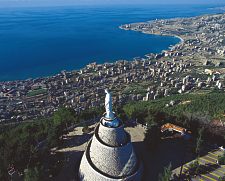
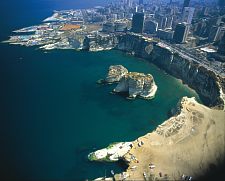


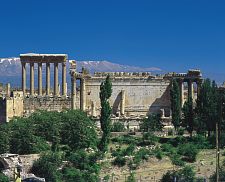
| |
Democracy in Lebanon: Lessons from
the Lebanese Cuisine
by Elie Al-Chaer*
CDL | August 08, 2007 | Visit:
AlChaer Blog
[Printable
Copy in PDF] |
SHARE YOUR THOUGHTS
After the Metn elections, much debate is taking place these days about the
viability of democracy in Lebanon, its values and its prospects, given the
intense emotional charging that preceded the elections and the role money may
have played in the process. These factors may have turned off many voters and
disillusioned young generations in the promise of their democracy, even some
seasoned Lebanese politicians like former Prime Minister Salim Al-Hoss who was
quoted saying in a statement that the Metn by-election polls had proven again
that "democracy in Lebanon is an illusion where money and emotions rule."
To begin, all elections, even in the finest of democracies, are held with an
element of money and emotions. To what extent these 2 factors “rule” the
process, corrupt the vote or dictate the outcome is controlled by the rule of
law. Elections are but one step in the democratic process; the primary and
essential step remains always the rule of law.
Defining democracy in the abstract is a daunting task and the subject of
encyclopedic volumes of discussions and debates. For me, the easiest way to
understand democracy is to look at it as a practical concept; think of it as a
plate of the world famous Lebanese salad: Tabbouleh.
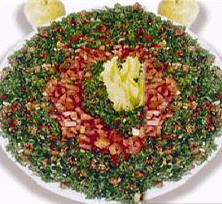
Tabbouleh is a Lebanese
salad dish. Its primary ingredients are finely chopped parsley, cracked wheat (Burghul),
diced tomato, chopped onions, lemon juice, olive oil, salt
and various other seasonings. The main tools needed to prepare the dish are a
sharp knife to chop, dice and slice and a large bowl to mix the whole.
Tabbouleh’s taste varies by region, from
country to country, town to town, and sometimes from one house to the next
within the same town. Each region has its recipe for the mix, including its
measures, special seasonings and preferred flavor. However, the one thing all
regions agree on is that you cannot prepare Tabbouleh without its main
ingredients (e.g. parsley) and a sharp knife. Once we agree on the concept of
diversity of Tabbouleh preparation within its universality, it becomes easy to
accept democracy as a main dish in our Lebanese political mezza.
A Recipe for Democracy “à la libanaise”
1) Five bunches of parsley:
The “parsley” (main ingredient) in any democracy is the rule of law. Without it,
there is no democracy. That does not simply mean electoral law; it means:
i) Fair and modern constitution that protects basic human rights for all
citizens without discrimination
ii) A modern penal code that protects the innocent and punishes the
criminal swiftly and justly
iii) A modern code to protect the civil rights of individuals against
private or public intrusion
iv) A fair tax code that redistributes wealth and protects the poor and
vulnerable population
v) A modern electoral law that guarantees one vote for one citizen
The essential tool (the sharp knife) for implementing the rule of law is an
independent, transparent and qualified justice system with equal access to all
and equal enforcement on all.
2) Two large tomatoes:
The second main ingredient for a successful democracy is the rule of reason. The
viability of any representative democracy rests as much on the wisdom of its
well-informed citizenry as on its laws. Two main safeguards are essential for
the rule of reason; these are:
i) insuring the public is always well-informed by protecting access and
providing transparency
ii) insuring the free-flow of knowledge by protecting the openness of the
marketplace of ideas
3) Two cups of burghul:
These are auxiliary precautions necessary to protect against abuse of powers. As
James Madison said in the Federalist Papers: "If men were angels, no government
would be necessary ... A dependence on the people is no doubt the primary
control on the government; but experience has taught mankind the necessity of
auxiliary precautions." These would be:
i) separation of powers between the executive, legislative and judiciary
branches of government
ii) a system of checks and balances through which branches of government
check each other, to ensure that the power of the government is both limited and
controlled.
4) One large onion:
That would be the freedom protection against the unhealthy accumulation of too
much power in the hands of one person; be it political power, military power or
economic power.
5) Seasoning and the mix:
That is done to taste and will have to be adjusted until you reach the right
measures. We are talking of course about the process of apportionment and also
districting within the electoral law. You only get it right with experience – of
course if you learn from experience.
6) Sample before you serve:
This is what happens in by-elections, general elections and referenda. Voters
get to say what they think of the taste, the ingredients and the chef. And in
the words of James Madison: “as long as the reason of man continues to be
fallible, and he is at liberty to exercise it, different opinions will be
formed.”
We Are Not Re-Inventing the Wheel
We may have invented Tabbouleh but we certainly did not invent Democracy nor we
are about to re-invent it. So why not look at other systems and borrow from them
what may work for us. Instead of always asking others for fish (to tell us what
to do), let us for once learn how to fish ourselves or ask others simply to show
us how they’ve done it.
Take the USA for instance, purportedly one of the most influential powers in
Lebanese politics these days: In the fall of the year 2000, the citizens of the
USA voted to elect a president. Candidate Albert A. Gore received 50,999,897
votes and candidate George W. Bush received 50,456,002 votes placing Bush
543,985 votes behind Al Gore in the popular vote. The constitution of the USA,
however, clearly states that a president is elected by a majority of the
electoral vote, regardless of the popular vote. Only three times before (1824,
1876, and 1888) in more than 250 years of the US constitutional history, the
electoral vote did not reflect the popular vote. What was most impressive about
the year 2000 presidential elections was not the outcome, but the legal process
through which the candidates challenged each other in the courts of law for ~ 2
months until the Supreme Court (9 judges) ruled 5 to 4 in favor of Bush. With
great dignity and majestic grace, Gore (winner of the popular vote by 543,985
votes; about 1/5 of the Lebanese population) conceded in a public address to the
nation and one of the most moving speeches in political history. Here is an
excerpt:
“Good evening.
Just moments ago, I spoke with George W. Bush and congratulated him on becoming
the 43rd president of the United States…Now the U.S. Supreme Court has spoken.
Let there be no doubt, while I strongly disagree with the court's decision, I
accept it. I accept the finality of this outcome which will be ratified next
Monday in the Electoral College. And tonight, for the sake of our unity as a
people and the strength of our democracy, I offer my concession. I also accept
my responsibility, which I will discharge unconditionally, to honor the new
President-elect and do everything possible to help him bring Americans together
in fulfillment of the great vision that our Declaration of Independence defines
and that our Constitution affirms and defends.” “…I know that many of my
supporters are disappointed. I am too. But our disappointment must be overcome
by our love of country.”
He closed by saying: “It is time for me to go. Thank you and good night and God
bless America.”
Al Gore could have easily bypassed the
institutional and constitutional processes, claimed that he represented the
majority of Americans (which he did), used this as a basis to continuously
emphasize his political power, taken his supporters to the streets to protest
the outcome and plunged his nation in civil unrest. But a dignified patriot
knows better, and for love of country forsakes all.
Obviously this is not intended as a review of American history but as an example
for us to learn how great leaders build great nations; by respecting the rule of
law and by stepping aside “gracefully” at the right moment.
It is also intended to illustrate how the rule of law rather than popular
elections is what preserves a democracy and brings forth internal peace for its
people.
Of course, the electoral and legal systems in Lebanon are not to be compared
with those of the USA; yet we have one advantage: being a smaller nation, we
should be able to manage our affairs more easily. What do we lack? May be just
the right leadership!
Admittedly, the system is not perfect. But fixing it begins by adopting a fair
and balanced electoral law, in which every vote counts (one citizen, one vote),
and districting and apportionment are not manipulated for electoral advantage.
Without getting into the details of a model electoral law, any law should at
least regulate the use of money in elections – i.e. require accountability and
limit spending for all candidates in order to level the field of competition
financially – and should be enforceable against all.
What Happened in Metn?
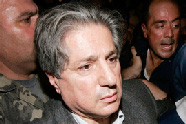
First and foremost, the Metn by-election should be interpreted for what it
really was: a by-election to fill a parliamentary seat vacated by the
assassination of MP Pierre Gemayel. As such there were winners and losers. The
candidate that obviously won the election was Dr. Camille Khoury.
The 2 other candidates lost.
Many may regard this as a narrow technical reading of the elections; for most,
however, it is a simple reality. The margin of victory should only be relevant
for the candidates themselves and their parties if they wish to broaden their
base and run again in the future.
The mistake that many in Lebanon make today on both sides of the political
spectrum (some with good intentions but others maliciously), is to blow the
results of this by-election out of proportion and beyond their immediate
implications.
Firstly, it was a by-election in a single district with ~48% voter
participation, and it generated a clear winner.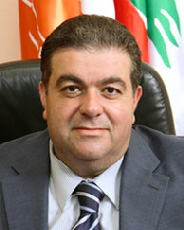
Secondly, it was not a referendum on who better represents the Christians or the
Maronites in Lebanon today, and therefore gets to name the next Maronite
president - Michel Aoun or the Christians of the March 14 Coalition - for many
reasons: technical (legal) and political.
Technical (legal) reasons:
1) The question of who better represents the Christians and their interests was
not on the ballot
2) The opinion of the Christians in the Metn district does not necessarily
reflect the opinion of all Christians in Lebanon
3) Not all the Christians of Metn participated, and
4) Non-Christians from Metn were also polled.
So technically, it was just a by-election to fill a seat in the Metn district
and the winner was Dr. Camille Khoury.
Political reasons:
For more than two years now, the March 14 Coalition brandished itself as a
national non-sectarian movement, representative of all Lebanese people, guided
by the Taef accord and the famous oath of the late Gebran Tueini on March 14,
2005. As such, its candidates in any district should seek approval of all the
district’s voters regardless of religious or ethnic affiliation. In fact, one
would expect their candidates to reach out nationally beyond their sectarian
base and their campaigns to brag about the diversity of their electorate rather
than recluse to the votes of a single sect looking for a measurable yet hollow
majority.
Surprisingly, many in the March 14 Coalition (most vocal being Samir Geagea),
are doing just the opposite. They persist in reporting the results along a
sectarian distribution in an effort to claim superiority in representing the
Christians and the Maronites. That in itself is a political failure of the March
14 Coalition, and on many levels:
1) It turns the coalition into a federation
of sects, rather than a coalition of national leaders. As such, Saad Hariri and
Walid Jumblat could no longer claim to represent the Christians and Shiites of
Beirut and the Shouf let alone Baabda-Aley, North Lebanon and the Bekaa; gutting
thereby their parliamentary majority of any political clout – “politically
speaking”.
2) Applying the Geagea logic to the results in Beirut II will leave the Future
movement with less than 20% of the Sunni voters; unless, of course, someone is
able provide a
fact-based reason for why more than 80% of the voters in a largely Sunni
district (Beirut II) would boycott a by-election at times of high political
tension.
3) The rhetoric used by some of the March 14 leaders is similar to the one used
by Michel Aoun after the elections of 2005. Basically, presuming
extra-institutional representative powers based on the popular votes of one sect
in one district. Where do you "cash this check" in an institutional government?
No matter how one looks at it, the March 14
Coalition lost the by-election in Metn, technically and politically. The only
political victory they may arguably claim goes to the cabinet of PM Siniora, and
that by no means confer on the Christian leaders of the March 14 coalition the
right to select the next president of the republic.
On the other hand, the Free Patriotic Movement (FPM) and its allies, ran in 2005
on a sectarian platform, capitalizing on the anger of the Christian voter at the
quadripartite alliance (Hariri, Jumblatt, Berri, Nasrallah), which totally
marginalized the Christians. Christian leaders from Kornet Shahwan (now in the
March 14 Coalition) who found it expedient at the time to participate with the
Muslim alliance, to the dismay of Bkerki, paid the price heavily; the FPM won a
majority of the Christian votes, albeit their representative power within
Parliament was limited. What happened afterwards, the FPM used their victory and
the mandate they acquired from the Christian communities of Lebanon to reach out
nationally. They managed to broaden their political platform beyond its narrow
sectarian appeal. Yes they may have sacrificed some of the Christian base but
that’s what popularity is for: you take it to a spin and find out how far it
carries you. Nationally speaking, it was a political success. The quadripartite
alliance disintegrated, and half of its members are allied with the FPM today.
In the 2007 Metn by-election, the FPM and its allies used the same old mantra
again (defending the Christians) without retracting from their broader national
appeal. They won again, this time with a cross-section of the national
electorate; very astute by all accounts!...but not enough to give the FPM and
its allies exclusive right to select the next president.
Therefore saying that the Metn by-election ended politically without a victor is
not accurate. In a parliamentary democracy, you do not seek to vanquish your
opponents; you simply seek to unseat them – unless of course you are following a
totalitarian model of elections, very common in our region of the world, and
unless you really prefer Tabbouleh “à la syrienne”.
Not so Perfect, but a democracy!
Despite all what was said and done, and despite the many flaws in the process,
one cannot but thank the government of PM Siniora for remaining as neutral as
humanly possible in a society like Lebanon, and insuring that the by-elections
were conducted in a transparent manner and according to existing Lebanese law.
Perfecting the law and streamlining the process remain our sincere desire; as
long as we work for it, we will be on the right track towards a better
democracy.
* Elie D. Al-Chaer, PhD, JD. Scientist and lawyer;
director of the Center for Democracy of Lebanon.
|